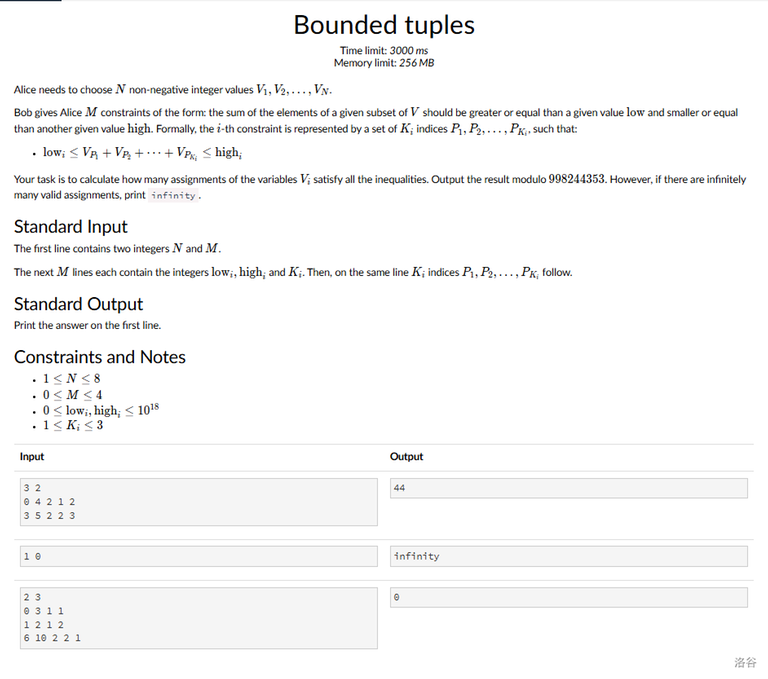→ Pay attention
→ Top rated
| # | User | Rating |
|---|---|---|
| 1 | tourist | 3856 |
| 2 | jiangly | 3747 |
| 3 | orzdevinwang | 3706 |
| 4 | jqdai0815 | 3682 |
| 5 | ksun48 | 3591 |
| 6 | gamegame | 3477 |
| 7 | Benq | 3468 |
| 8 | Radewoosh | 3462 |
| 9 | ecnerwala | 3451 |
| 10 | heuristica | 3431 |
→ Top contributors
| # | User | Contrib. |
|---|---|---|
| 1 | cry | 167 |
| 2 | -is-this-fft- | 162 |
| 3 | Dominater069 | 160 |
| 4 | Um_nik | 158 |
| 5 | atcoder_official | 157 |
| 6 | Qingyu | 156 |
| 7 | djm03178 | 152 |
| 7 | adamant | 152 |
| 9 | luogu_official | 150 |
| 10 | awoo | 147 |
→ Find user
→ Recent actions
Codeforces (c) Copyright 2010-2025 Mike Mirzayanov
The only programming contests Web 2.0 platform
Server time: Feb/23/2025 05:08:29 (k2).
Desktop version, switch to mobile version.
Supported by
User lists


| Name |
|---|











It seems like a very constrained version of the "count integer points inside a polytope" problem. For fixed dimension there are polynomial solutions for it. See: A Polynomial Time Algorithm for Counting Integral Points in Polyhedra When the Dimension Is Fixed [AI Barvinok · 1994].
I don't know for sure, but possibly you can maybe simplify this paper a bit and just implement that. Still that seems really hard. I don't know if there's any easier ideas.
Thx, I’ll give the paper a read. appreciate your help here!